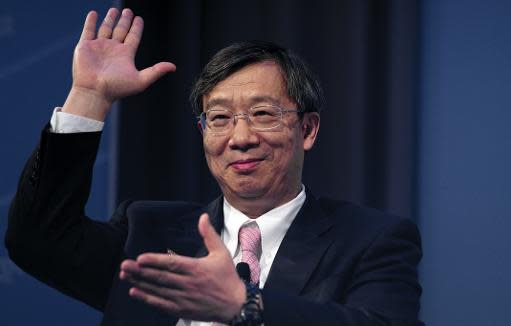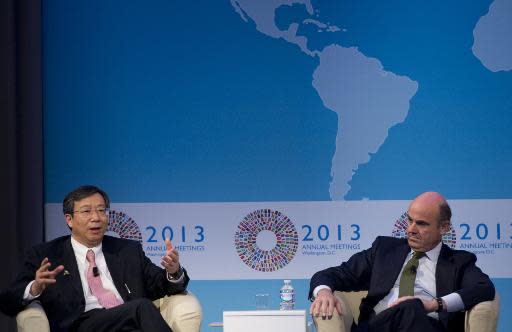US should have 'wisdom' to solve debt problem: China
A top Chinese central banker on Thursday called on the United States to overcome political gridlock and avoid a debt default. "They should have the wisdom to solve this problem as soon as possible," Gang Yi, deputy governor of the People's Bank of China, said at an IMF panel discussion. "The market doesn't like uncertainty and we watch that drama very closely," he said, speaking in a CNN-hosted panel discussion on the sidelines of the IMF/World Bank annual meetings in Washington. The Chinese official's remarks came on the 10th day of a US government shutdown over a budget dispute between Democrats and Republicans that has rolled into a battle over raising the US debt ceiling. China is by far the largest holder of US debt and has expressed concerns about a debt default if Congress fails to raise the $16.7 trillion borrowing limit. The US Treasury says it could default on its obligations as soon as October 17. Premier Li Keqiang of China, the largest foreign holder of US government debt, reiterated his country's "concern about Washington's debt ceiling problem" when he spoke with US Secretary of State John Kerry at an Asian summit Thursday in Brunei, according to China's official Xinhua news agency. The state-run China Daily newspaper in Beijing blasted "the astonishing failure" of the US Congress. "It is pitiful that the US is now putting the fragile world recovery under renewed threat with its mind-boggling political infighting," it said. Yi, speaking on a panel that included IMF managing director Christine Lagarde and Jason Furman, the head of US President Barack Obama's Council of Economic Advisors, said that right now China sees some recovery in developed economies, but that emerging markets are facing difficulty. "Adding this (US) budget and debt limit uncertainty would be a hurdle for the recovery and for the future development of the economy." "We certainly need a very stable global economy," he said. "If we see the developed markets recovering, the US economy robust next year, that's certainly good news." Yi cautioned that the US Federal Reserve should carefully manage a reduction in its massive monetary stimulus. "What we need is an orderly, well-communicated tapering," he said. "More important, China needs free trade and investment." Asked about China's launch of a free-trade zone in Shanghai in late September, Yi said it was an opportunity for setting the "right pace" of reforms in the world's second-largest economy as it tries to restructure its economic model in the face of slowing growth. "We need some place to experiment" on reforms, including financial reforms, he said. China launched the 29-square-kilometer (11 square mile) zone in the country's commercial hub Shanghai on September 29, saying it was a bid to implement "a more opening-up strategy." Yi Gang, Deputy Governor of the People's Bank of China, waves during a CNN Debate on the Global Economy at George Washington University during the annual World Bank - International Monetary Fund meetings in Washington, DC, October 10, 2013 Yi Gang (L), Deputy Governor of the People's Bank of China, speaks alongside Luis de Guindos, Minister of Economy and Competitiveness of Spain, during a CNN Debate on the Global Economy at George Washington University on October 10, 2013

